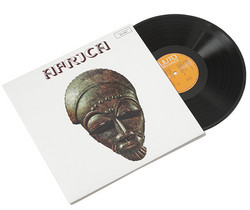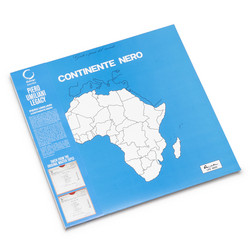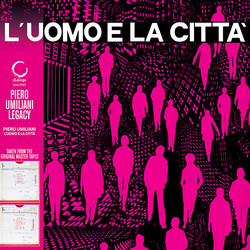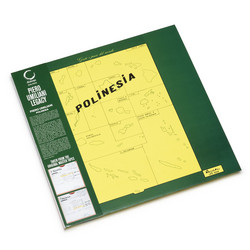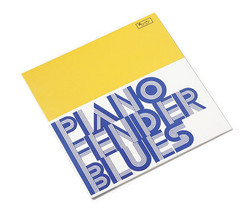Piero Umiliani Legacy Series
The Milan based imprint, Dialogo, is on fire. 2020 saw them drop the astounding Ennio Morricone and Bruno Nicolai Dimensioni Sonore box set, while 2021 has already been graced by their reissue of Spirale’s legendary self-titled LP and the inauguration of their focused reissued series from the vaults of Cramps. With more on the way, they’re back with the launch of their Piero Umiliani Legacy Series, mining some of the most celebrated and sought-after works by the seminal composer, presenting them in new editions remastered from the original analogue master tapes. Blurring the boundaries between jazz, psych, and outright experimentalism in a way that only Umiliani could, they’re a thrilling aural journey into in company of one of the most important musical minds to emerge from Italy during the latter half of the 20th Century.
Like so many members of his generation, Piero Umiliani (1926 – 2001) exists within a fascinating paradox of social and musical history; a composer of profound importance and vision, whose sprawling body of work has remained sinfully obscure. In part, this is a consequence of his devotion to the mysterious and often anonymous realm of Italian library music and soundtrack composition to which he devoted his life. Rigorously experimental and forward-thinking, Umiliani produced hundreds of albums that collectively resist notions of genre, movement, and ideological position, many of which appeared under monikers - M. Zalla, Moggi, Old Big Chief And His Magic Twenty Fingers, Rovi, Tusco, etc. - and add further mystery to his body of work. Few artists have ever been as prolific or visionary, making the inauguration of Dialogo’s Piero Umiliani Legacy Series - diving into the composer’s remarkable and hard to obtain catalog - as urgent as it is exciting.
M. Zalla (Piero Umiliani) "Africa" LP
Africa, released by Liuto Records - the label founded in 1970 by Piero Umiliani and his wife Stefania - belongs to the canon of library music produced in Italy across the 1960s, 70s, and 80s, which encountered many of the country’s most talented composers employed within the film industry, where they were offered unparalleled creative freedom to experiment and produce radical and forward-thinking sounds.
A long-standing holy grail for collectors of visionary Italian music, Africa emerged under Umiliani’s moniker M. Zalla, the pseudonym he used when tidying up uncompromising and avant-garde music textures. It was years ahead of its time upon release in 1972, encountering the maestro locked within the walls of his Sound Work Shop Studio, weaving complex narratives and sonic collisions, while incorporating dozens of influences from a life spent experimenting and discovering new sounds.
Launching from the prog-tinged rhythms of “Africa To-Day”, the album immediately shifts toward radical waters with the glacially paced pulsing rhythms and abstract electronics of “Echos” and “Sortilege”, the rippling minimalism of Savana, and the ‘fourth world’ temperaments “Green Dawn”, but still refuses to be nailed down. Across the two sides, experimentation drives the sound, as the hypnotic drumming and bass lines of “Rhythmical Stress” break through, opening space for the flute driven works, Sadness”, “Folk Tune”, and “Mysterious, “ as much as diving, percussive and tonally rich works that make up the majority of the second side.
If ever there was an LP to expand the notions of Library music’s vast potential and scope, M. Zalla’s Africa has to be it. Nearly 50 years on, it feels as fresh and forward thinking as anything that has come since. A true masterpiece of the genre, that stands with best of any other idiom of experimental music, it’s impossible to recommend enough. The album comes remastered from the original analogue master tapes, and housed in a sleeve that faithfully reproduces the original cover design and also include a obi-strip,
Piero Umiliani "Continente Nero" LP
Released three years later in 1975, “Continente Nero” - issued by the composer’s Omicronis imprint - is the perfect complement to “Africa”. Where the former channeled sounds and influences drawn from the African diaspora into decidedly abstract terms, with “Continente Nero” Umiliani pays a similar homage by incorporating a vast pallet of rhythmic variations into a visionary rethinking of the idiom of jazz, channeling Fela Kuti, Art Ensemble of Chicago, John Coltrane, Max Roach, Charles Mingus, Freddie Hubbard, and hundreds of others into a free-flowing vessel that’s entirely his own.
Chugging and free flowing, driven by tonal and rhythmic depth that only large bands can achieve, “Continente Nero” possesses such a remarkable sense of emotiveness and creative honesty that the fact that it was made for use in films, rather than being issued within the broader context of jazz, seems to defy reason. It easily stands among the greatest documents of the idiom to have emerged from Italy during any period.
Closely related to multiple threads of spiritual jazz that were emerging within the United States during roughly the same period, the band locks in and plows forward with African tinged melodies and carefully orchestrated distances, guided Umiliani’s startling vision, repetitive structures - often bordering on the minimalistic - and unique rhythmic sensibility that runs like a river beneath it all, sending the listener plunging into a deeply personal, imagined world; a hypothetical forth world concept of jazz.
Impossible to sum up, “Continente Nero” is incredible from start to finish. Long deserving of wide recognition, if not outright celebration, Dialogo’s reissue of this masterpiece is nothing short of momentous event. Pressed onto glorious vinyl, the format for which it was conceived, remastered from the original analogue master tapes, and housed in a sleeve that immaculately reproduces the album’s stunning, original cover design and also include a obi-strip.
Piero Umiliani "L'Uomo e la Città" LP
Originally issued in 1976 by the composer’s own imprint, Liuto Records, L'Uomo e la Città falls toward the end of a remarkably productive period for the composer. Over the 10 years prior, he created multiple dozens of film soundtracks and library releases in various roles and guises, before dramatically slowing his pace during the last two and a half decades of his life. L’Uomo e la Città, an intricate panorama of urban Italian themes - factories, metropolis, work, technology, etc. - attempts (and arguably achieves) to provide a plausible soundtrack to a rapidly changing world during the hectic 1970s, drawing a vast pallet of references and approaches, from avant-garde techniques / sounds sources, risky experimentation, and easy-listening songs, all hinting toward the chaos of traffic and assembly lines, counterbalanced by the silence of the night, the end of the working day, and the happy ease of Sunday’s rest.
With Umiliani backed by a large, all-star ensemble that includes celebrities players like Bruno Tommaso, Oscar Valdambrini, Dino Piana and Nino Rapicavoli, L’Uomo e la Città falls solidly within the idiom of jazz that emerged during the 1970s, resting slightly adjacent to popular music, with funky, sweet tonalities and rhythms that reference the big band sounds of '30s and '40s, while making something entirely new and of the moment, brought further afield by the presence of futuristic, electronic sounds.
Comprising 13 free-standing compositions that double as components within a seamless sonic journey of imagined and real spaces, from hard driving to smooth and silky the band rises and falls - locked in with extraordinary tightness - that plays like an absolute joy before the ear, L’Uomo e la Città is Umiliani gold. Issued by Dialogo as part of their Piero Umiliani Legacy Series - in a beautiful fully-authorized vinyl edition, also available on CD and remastered from the original analogue master tapes - it’s an absolute must for any fan of Italian library music and soundtracks, as well as any fan of '70s jazz.
Piero Umiliani "Polinesia" LP
Belonging to a series of geographical-themed albums that draw upon numerous indigenous traditions from across the globe, like the previous releases in Dialogo’s Piero Umiliani Legacy Series - Continente Nero and Africa - Polinesia, issued by Piero Umiliani’s own Omicron imprint in 1975, highlights the composer’s travels and his striking ability to mirror these physical movements through sound, activating a seemingly unstoppable realm of creative freedom and exploration for composer and musician alike.
Rooted in a foundation of rich percussion, soft tribalism, and exotic suggestion, Polinesia renders an abstract mirage of white beaches kissed by the ocean via its colorful cocktail of sonority, dancing blissfully across the album’s 15 songs, and covering a startlingly amount of creative territory as it goes. From the loungy kitsch of its opening tracks, or the overwhelmingly beautiful vocal melodies of Sotto le Palme, to the percussive minimalism of Canoe, Erbe Magiche, Danza Magica - each calling to mind Moondog at his best, with a bit of Midori Takada thrown in - and the dense ambiences of Pellegrinaggio, the composer takes us deep into an imagined realm, moving freely across its geographies and drenching the ears in its sounds.
Beautiful and striking from the first turn to the last, Umiliani’s Polinesia fleshes out the world we began to explore with Dialogo’s reissues of Continente Nero and Africa, adding breezy sounds to the mix and plenty of dynamism across its length. Never before reissued on any format, with original copies commanding top dollar on the secondary market, Dialogo’s fully authorised vinyl reissue of Polinesia is a stunning thing to behold. Also available on CD, the album was remastered from the original analogue master tapes.
Rovi (Piero Umiliani) "Pianofender Blues" LP
Sounding almost as though Tortoise and Stereolab had joined forces to play jazz, Piero Umiliani described his 1975 LP, Piano Fenderblues, as “Music with a modern but discreet sound”. Recorded by an ensemble comprising two electric pianos (Fender and Wurlitzer), bass, piano, drums, and percussion, the album encounters the famed Florentine composer stretching out into territories that stand slightly apart from his most widely celebrated efforts and avant-garde experimentations.
Released under the moniker Rovi by Umiliani’s own Omicron imprint, at first glance Pianofender Blues appear to be what the literalness of its title describes, a bluesy excursion driven by electric piano. At a closer listen, the album’s 'light', 'easy listening' repertoire - orbiting around the melancholic tones produced by the famous keyboard - reveals a startling level of complexity and tension, that highlights the composer's remarkable versatility.
Funky and smooth, darting to and from like elevator music on the high seas, Piano Fenderblues is a fascinating and startling listen - revealing its depths slowly over time - embedded in what migsht be misunderstood as one of Umiliani’s more accessible works. Dialogo’s beautiful, fully-authorized vinyl and CD reissues of this strange wonder - the first since its original 1975 release, beautifully remastered from the original analogue master tapes - further expands our understanding and approach to one of Italian music’s most radical and complex minds, and is an absolute must for any fan of this unparalleled era of the country's library music and soundtrack triumphs.

